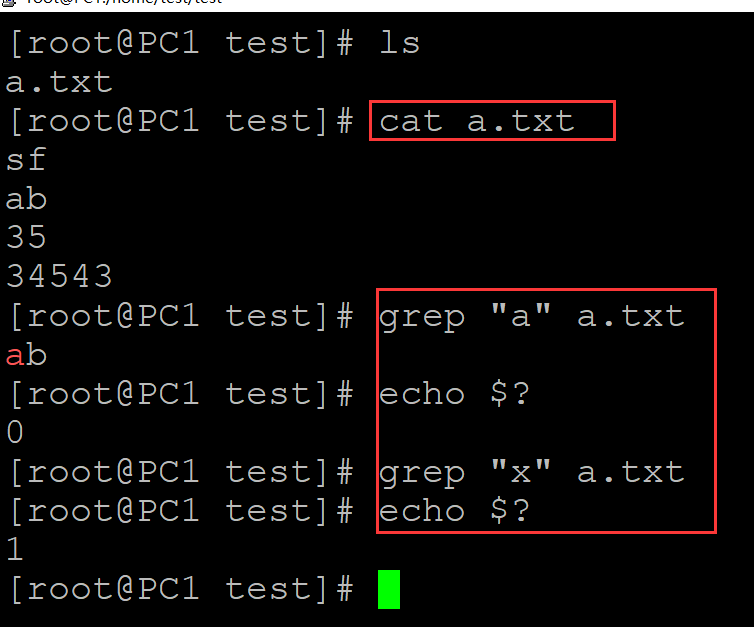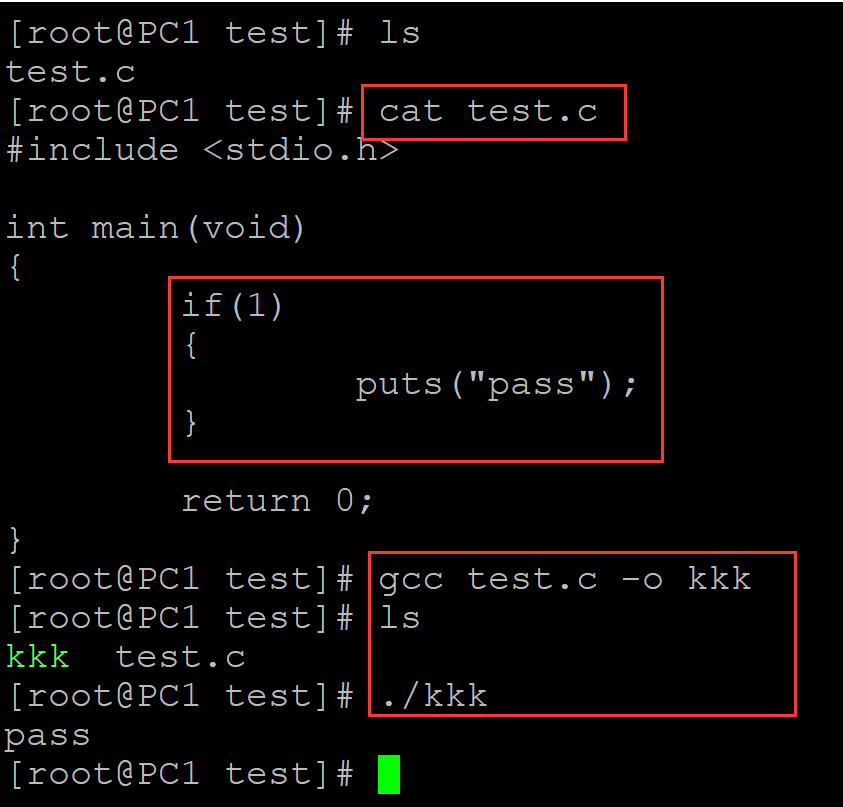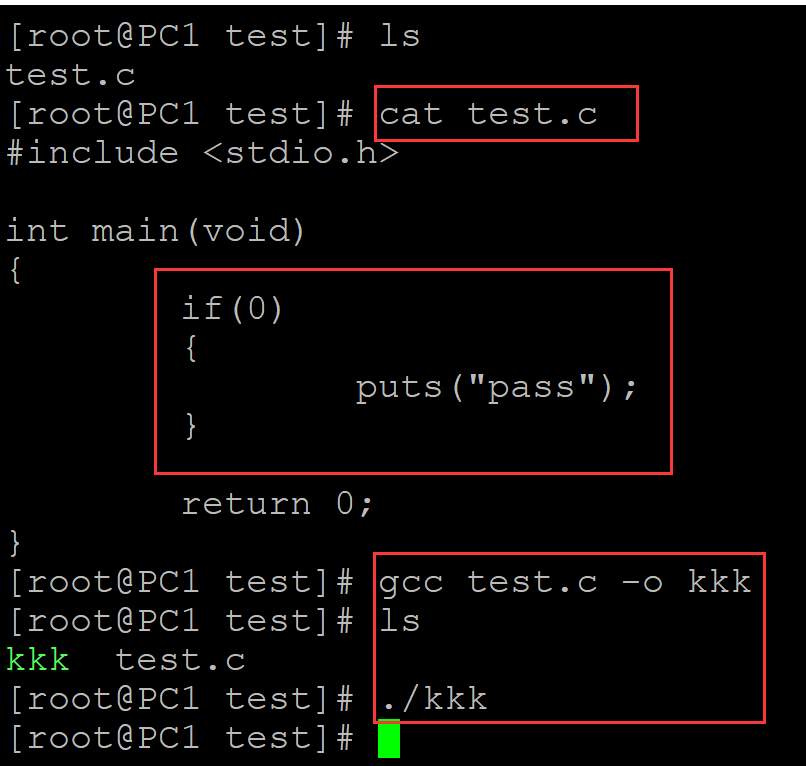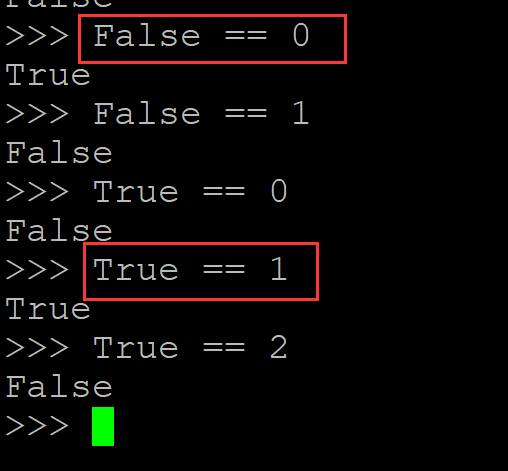程序返回条件的0和1
001、在linux中如果程序正常执行,则返回0,错误执行返回非0值
[root@PC1 test]# ls a.txt [root@PC1 test]# cat a.txt sf ab 35 34543 [root@PC1 test]# grep "a" a.txt ab [root@PC1 test]# echo $? 0 [root@PC1 test]# grep "x" a.txt [root@PC1 test]# echo $? 1

002、在c、python中,False为0, True为非0
a、c中
01、
[root@PC1 test]# ls test.c [root@PC1 test]# cat test.c #include <stdio.h> int main(void) { if(1) { puts("pass"); } return 0; } [root@PC1 test]# gcc test.c -o kkk [root@PC1 test]# ls kkk test.c [root@PC1 test]# ./kkk pass

02、
[root@PC1 test]# ls test.c [root@PC1 test]# cat test.c #include <stdio.h> int main(void) { if(0) { puts("pass"); } return 0; } [root@PC1 test]# gcc test.c -o kkk [root@PC1 test]# ls kkk test.c [root@PC1 test]# ./kkk [root@PC1 test]#

b、
>>> False == 0 True >>> False == 1 False >>> True == 0 False >>> True == 1 True >>> True == 2 False

。






【推荐】国内首个AI IDE,深度理解中文开发场景,立即下载体验Trae
【推荐】编程新体验,更懂你的AI,立即体验豆包MarsCode编程助手
【推荐】抖音旗下AI助手豆包,你的智能百科全书,全免费不限次数
【推荐】轻量又高性能的 SSH 工具 IShell:AI 加持,快人一步
· 震惊!C++程序真的从main开始吗?99%的程序员都答错了
· 【硬核科普】Trae如何「偷看」你的代码?零基础破解AI编程运行原理
· 单元测试从入门到精通
· 上周热点回顾(3.3-3.9)
· winform 绘制太阳,地球,月球 运作规律
2022-07-30 GWAS logistic + 协变量 回归分析
2022-07-30 R语言中exp函数
2022-07-30 GWAS logistic回归分析
2022-07-30 CPU的IPC性能是什么意思?